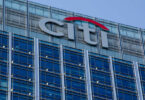Today the World Trade Board unveiled the Trade Roadmap, a framework to address the lack of trade finance available to micro and small businesses (MSMEs) as part of a program to address financial inclusion. It’s an area where DLT and other technologies can play a significant role. The Board is looking for feedback.
The MSME trade finance challenge
The trade finance gap for MSMEs was estimated at $1.5 trillion for years but increased to $2 trillion in 2020. MSMEs represented 23% of applications that year but 40% of rejections.
A key reason is the high perceived risk of financing small businesses. That’s a critical area that technology can help to address. Potential solutions may or may not use blockchain. For example, centralized supply chain finance solutions have already helped some SMEs rely on their customer’s creditworthiness combined with the confirmation that the customer will pay the SME’s invoice.
Another factor is most small businesses are unknown to the bank or financier. So there’s a heightened risk of fraud. Hence the importance of legal entity identifiers as well as decentralized identity so that a person can prove they have the authority to speak for the company.
Former European Commissioner for Trade Pascal Lamy, who is Strategic Advisor to the World Trade Board commented, “Representing approximately 90% of businesses and more than 50% of employment worldwide, these companies are the foundation of the global economy.”
The Trade Roadmap
The five pillars of the roadmap include the following:
- Digital infrastructure: electronic invoicing, legal entity identifiers (LEIs) and decentralized identifiers
- Legal and regulatory infrastructure: particularly legal standards for factoring
- Data infrastructure: using newer credit scoring methodologies based on AI and purchase orders or invoices, as opposed to financial accounts. Our view is DLT can play a role in verifying invoices
- Provide technical assistance
- Encourage new funding sources.
There are already multiple solutions aiming to share invoicing data between banks. Some, such as Monetago, started as DLT-based but migrated to a centralized system.
The roadmap predominantly addresses the supply side of trade finance. But there are issues on the SME side. A survey of U.S. manufacturers by USITC showed bigger gaps between large and small companies in areas other than access to trade finance. These include challenges in receiving foreign payments (another area where DLT can help), finding foreign partners and affiliates and navigating customs procedures.
Blockchain firms have been major drivers in the digitalization of trade and trade finance, with Marco Polo and R3 helping to instigate the ICC Digital Standards Initiative.
Meanwhile, key contributors to the Trade Roadmap include the Chamber of Commerce UK (ICC UK), the International Finance Corporation (IFC), BAFT (Bankers Association for Finance and Trade), the International Trade and Forfaiting Association (ITFA) and FCI.






